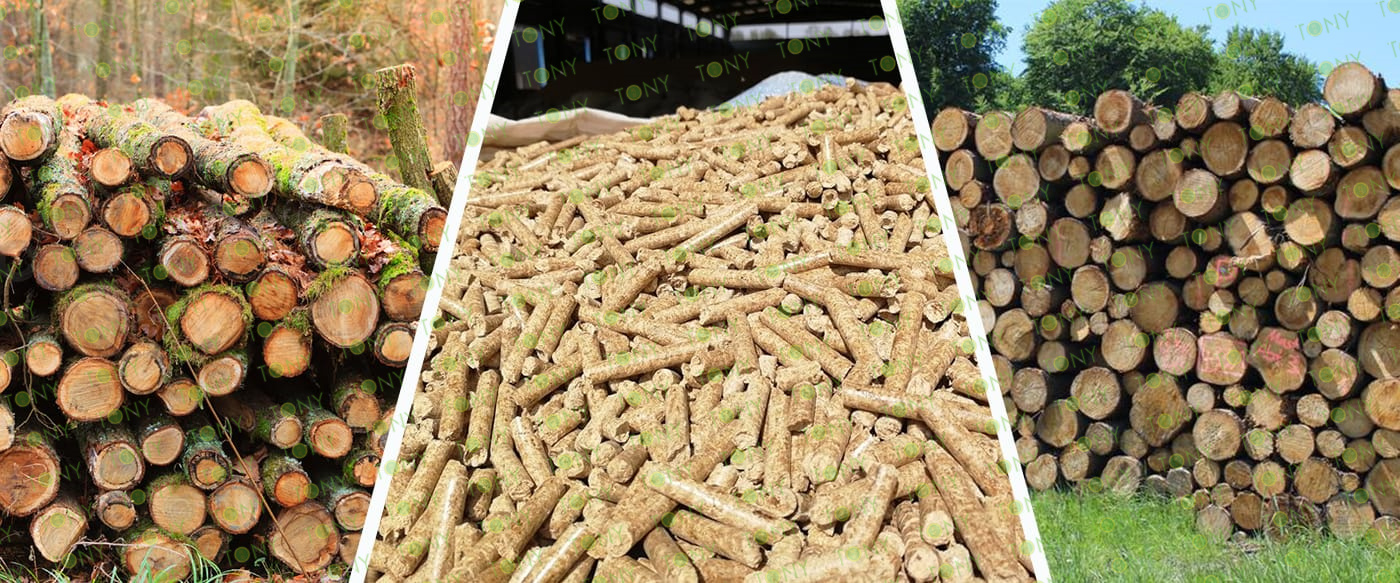Many customers and friends who are engaged in the biomass pellet fuel industry have established processing plants. They often encounter an embarrassing situation in the early stages of their industry, where biomass pellets cannot be produced or the output does not meet the standards. This made the customers and friends very anxious and began to question the equipment problem, and they had questions in their hearts: "What's wrong with my pellet machine?"
When encountering this kind of problem, the editor recommends that you don’t worry first. After all, you are just starting out in the industry and are in the exploratory stage, so it is normal to encounter problems. TONY provides 24/7 services to help you solve problems encountered in the pellet production process. As a professional biomass pellet machine manufacturer, TONY summarizes the following reasons for the low pellet machine production:
1. Raw materials
Raw material humidity: The ideal raw material humidity is generally between 10%-15%. If the raw material humidity is too high, it will easily form clumps during the pressing process, affecting the forming and discharge speed of the pellets, resulting in a decrease in yield; if the humidity is too low, the material flowability will also affect the feeding and pressing efficiency of the pellet machine.
Raw material particle size: If the raw material pellets are too large and it is difficult to pass through the small holes of the mold, it will increase the pressing difficulty and reduce the yield; if the raw material particle size is too small, it will make the air permeability of the material in the mold, which will also affect the production efficiency. Generally, the particle size of raw materials suitable for biomass pellet machine should be around 6-10 mm.

2. Equipment aspect
Mold problem: Mold is a key component of a biomass pellet machine. As the use time increases, the pore size of the mold will gradually wear and increase, resulting in poor particle forming effect and decreased yield. In addition, if the compression ratio of the mold is not suitable for the processed raw materials, it will also affect the quality and yield of the pellets.
Press roller wear: The press roller cooperates with the mold to complete the pressing process of the material. After the press roller wears, the gap between the mold increases, which insufficient extrusion pressure on the material makes it difficult for the material to be compacted and molded, thereby reducing the output.
Feeding system failure: If the feed port is blocked, or the feed spiral fails and the feeding chamber cannot be supplied uniformly and continuously, it will lead to discontinuous pressing process and reduced output.
3. Operational aspects
Improper setting of pressing parameters: The pressing process of the biomass pellet machine requires appropriate pressure, speed and other parameters. If the pressure is too small, the material cannot be fully compacted, the pellets will be loose, and the output will be low; if the pressure is too large, it will increase the load on the equipment and may even lead to equipment failure. If the speed is too fast or too slow, it will affect the residence time and molding effect of the material in the pressing room, and thus affect the output.
Improper equipment maintenance: The lack of regular maintenance and maintenance of the equipment will lead to aggravation of wear of each component, affecting the performance and stability of the equipment, and reducing output. For example, if the bearing oil deficiency and gear wear are not dealt with in time, it will have adverse effects on the operation of the equipment.
4. Other aspects
Ambient temperature: In cold environments, the fluidity of materials will become worse, increasing the difficulty of suppression and resulting in a decrease in yield. In high temperature environments, equipment is prone to overheating, which affects the normal operation and service life of the equipment, and may also lead to a decrease in output.
Unstable supply voltage: Unstable voltage will cause the motor speed to fluctuate, thereby affecting the working efficiency of the granulator. When the voltage is too low, the output power of the motor is insufficient, the pressing force and rotation speed of the equipment will decrease, resulting in a decrease in output
In short, to fully master the production process of biomass pellets, long-term accumulation and experience are required. And we TONY are willing to make progress and develop together with all our friends.





















